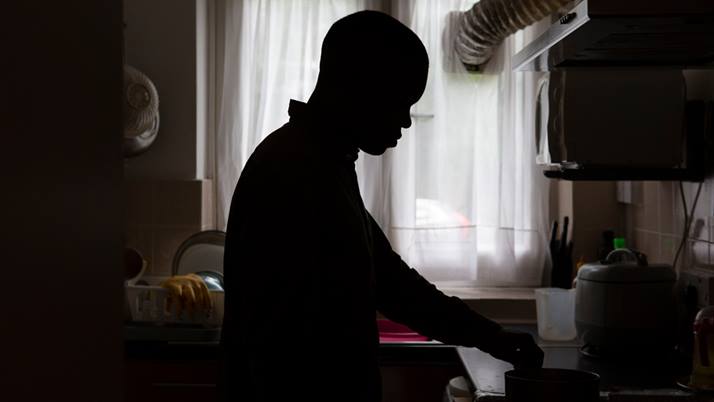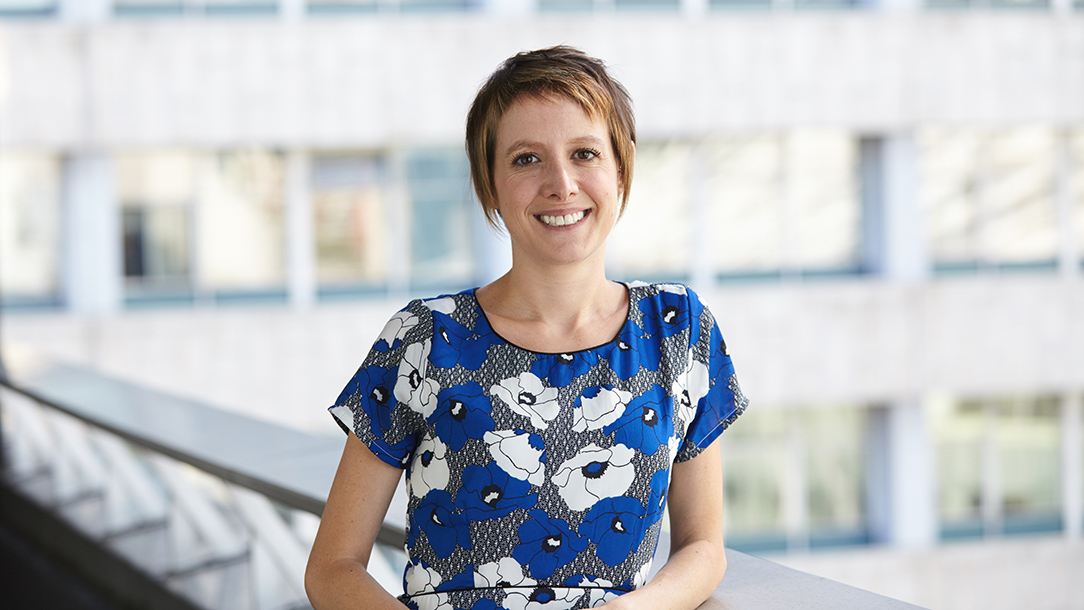"It is not acceptable that modern slavery is still taking place in our communities"
By Naomi Phillips, Director of policy and advocacy
Last updated 5 December 2012
Most people know the British Red Cross as an international aid organisation, supporting people across the globe affected by poverty, drought, tsunamis or hurricanes. What few people realise is that we also support victims of trafficking and modern slavery in the UK.
This largely involves providing people with clothing, food and emotional support immediately after they leave exploitation. But over the past year we have also been testing a model of long-term support to counteract the lack of government support available to survivors of trafficking.
Until recently, once someone is recognised by the Home Office as having been trafficked, they were entitled to only 45 days of basic accommodation and financial aid. After this period all support stops, but we know that survivors are still a long way from recovery.
Through our front-line work we see the affect that this lack of support has on people. It can leave them facing poverty, struggling to cope with complex mental health needs and – most worryingly – at risk of falling back into the hands of their traffickers.

©Kate Stanworth/British Red Cross
A year of support for trafficked people
According to our recent report Hope for the Future, those without UK or EU nationality are being placed at the biggest risk.
Even after the Home Office has recognised that they have been trafficked, they have no automatic right to stay in the UK, even for a short time, As a result, they can’t get the help that they need to recover and avoid further exploitation – crucial things like healthcare, secure accommodation and mental health treatment.
To try to counteract the limited support available, the Red Cross partnered with Ashiana and Hestia, and collectively we trialled a new approach of giving a year of continued support to survivors of trafficking.
HALF OF THOSE SUPPORTED BY THE PROJECT WERE FEMALE SURVIVORS OF SEXUAL EXPLOITATION.
Through this holistic model, we ensured survivors had access to specialist mental health support, links to employment, English language classes and safe accommodation. We know this is one of the biggest issues with the current model of statutory support.
By having long-term contact with survivors of trafficking, we saw how a lack of suitable accommodation made the mental health of survivors worse and placed them at a worrying risk of re-trafficking.
Half of those supported by the project were female survivors of sexual exploitation. Yet most had previously been placed in mixed-sex accommodation where male guests had unregulated access to the property – making them more vulnerable to further abuse and exploitation.
More time to help survivors of trafficking
Most of the people we supported also had high mental health needs. However, repeated re-housing resulted in them having extensive difficulties accessing treatment and continuously having to go to the bottom of waiting lists.
We are trying to address the needs of people who have been trafficked and reduce the factors that put victims at risk of further exploitation, gender-related violence, abuse and disempowerment. But it cannot be solely down to charities like ours to deliver this.
It is not acceptable that modern slavery is still taking place in our communities and that victims are being left without adequate aftercare. To stop the cycle of abuse and re-trafficking, the UK government needs to commit to implementing policies that guarantee better support for all people who have been trafficked, regardless of their nationality.
That’s why, as well as calling for survivors to be provided with support for at least a year, we also want people who’ve been recognised as survivors of trafficking in the UK to be allowed to stay in this country for at least 30-months, to give them the chance to get the help they need to recover and to prevent them falling back into the hands of traffickers.
We know that our demands will reduce both the human cost and the cost to the public purse of modern slavery. The University of Nottingham has recently calculated that providing support to survivors of trafficking for 12 months would directly boost the economy by between £1m and £6.6m every year.
Survivors must feel safe and secure
Just before we published our report, the Home Office faced a judicial review of their policy and were forced to accept that better support is needed for survivors of trafficking. But when the department published guidance setting out this new system, we were disappointed that it failed to address many of our findings. If fails to provide certainty and security for survivors, particularly for those who are left without a clear immigration status.
We will continue to call on the Home Office to keep developing their support for survivors of trafficking to make sure that people receive the help and services they need to recover and rebuild their lives.

Naomi Phillips
Director of policy and advocacy
Naomi Phillips is director of policy and advocacy at the British Red Cross and part of its strategic leadership team. Naomi specialises in policy, research, advocacy, government relations, public affairs and partnership working.
Help us support refugees
Refugees have experienced the worst challenges in life - but together, we can show the very best of humankind. Please help us continue our vital work in the UK, and around the world.
Donate